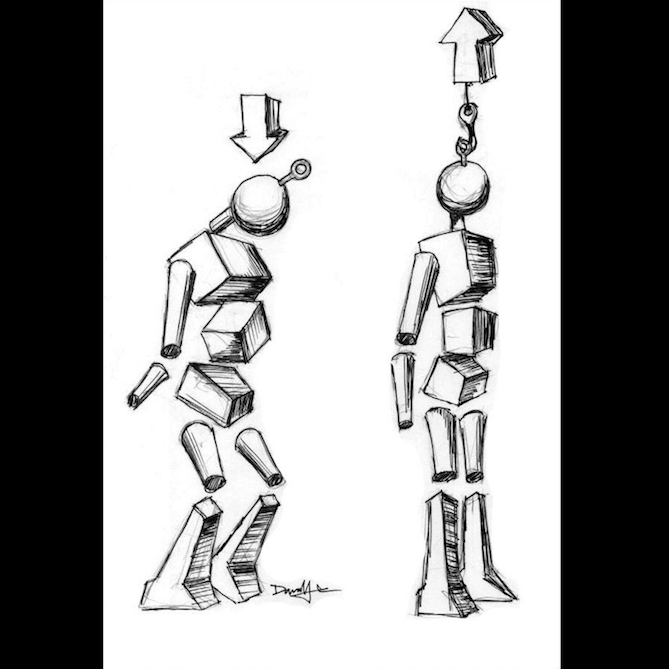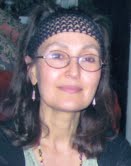
Going Up
Selma Gokcen
“The world is a ladder, which some go up and some go down.”
—Gypsy Proverb
‘Think up along the spine’: five of the most important words in the Alexander Technique. It takes as much hard work, patience and humility to understand and live these words as it does to interpret great works of music, perhaps more, because thinking up along the spine means that every waking moment we can be conscious of ourselves, not only when we are making music.
For cellists, thinking up along the spine is going for the gold. So given its importance to us as players, what does this phrase tell us? Working backwards from the last word to the first, let’s see where it takes us.
The spine is composed of 24 articulating vertebrae with discs in between which provide a cushion between the discs and lend a springy quality to the spine, so that it is able to absorb impact. The spine can be compressed (discs squeezed and hence vertebrae brought closer together) or it can be allowed to regain its original length with the release of compression. The main function of the vertebrae is to protect the spinal cord, that vital pathway of nerve transmission between the brain and the rest of the body. There are spinal nerves that issue forth along spinal column from top to bottom and the health of those nerves must be protected for our wellbeing.
The word ‘up’ is so simple to say and nearly impossible to translate into action in the early stages of working with the Alexander Technique. I remember my first lessons as an entirely humbling experience. As smart as I thought I was, I could not distinguish up from down. I could point up and point down of course! But when it came to movement, I could not distinguish when my spine was compressing to move (pulling down) and when it wasn’t. Occasionally I would have an experience of the spine lengthening in movement and the sensation was heavenly, free and light and easy, as if working without any effort from me. But much as I wished to repeat the experience, I had a hard time preventing the shortening. So Up remained only an intellectual concept for a very long time. My sensory awareness was too crude and blunt, my thinking power too undeveloped to make much headway on my own. It was the beginning of the proverbial long descent into the ‘darkness of unknowing’ that every real journey requires, a clearing out of the old to make way for the real knowledge and wisdom worth having. Up along the spine is where the ease and freedom lies for the cellist’s arms and fingers—co-ordinated movement powered from the centre to the periphery is our birthright.
Which brings us to the mother lode—the word that unleashes the power of the phrase. Think. What is thinking in terms of the Alexander Technique? This word ignites more controversy in the profession and it is far easier to say what it is not than what it is. Patrick Macdonald, one of the finest teachers of our work, used to say: in the beginning one must learn to think but not to do. Later one learns to let the doing come out of the thinking. The thinking is a mental process which is honed (much as one would sharpen a knife) through the repeated sending of messages from a deep quiet. There is an energy awakened in the spine—the spine lengthens and moves us properly, with the right amount of tension and no more.
A thought properly directed up along the spine is more powerful than we can imagine. It harnesses energy which is not of our own making but which passes through us and into the world around us. That same energy gives us the ability to communicate the essence of a great piece of music, to be present in teaching and learning, and to be ourselves pure and simple.
Subjects: Playing Healthy
Tags:
